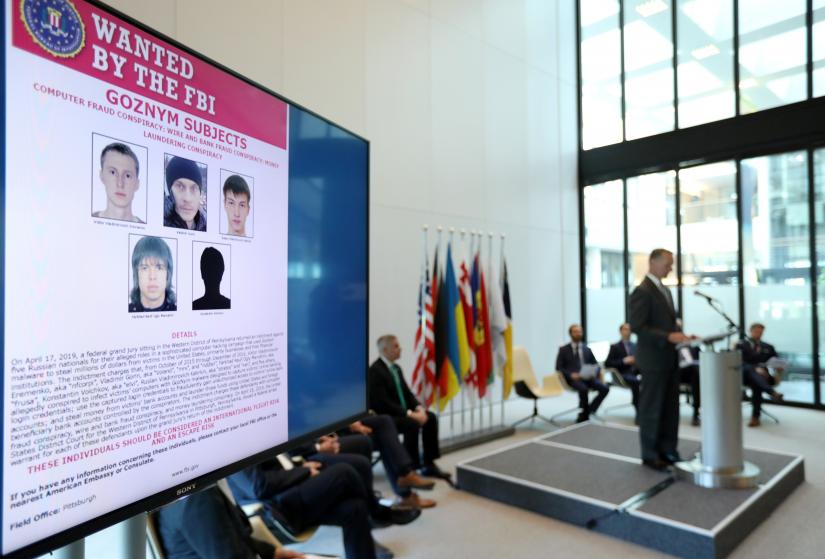 Cyber-attacks have now become one of the biggest concerns for governments and companies around the globe. Last year alone, there has been an 11% increase in security breaches by hackers. These growing figures show just how big a threat cyber-crime has become. With security experts fighting the hackers, the cybercrime economy is growing so quickly, it’s now making profits of 1.5 trillion dollars each year. A recent Microsoft survey suggests executives now consider cyber-attacks to be the top threat to their business.
Cyber-attacks have now become one of the biggest concerns for governments and companies around the globe. Last year alone, there has been an 11% increase in security breaches by hackers. These growing figures show just how big a threat cyber-crime has become. With security experts fighting the hackers, the cybercrime economy is growing so quickly, it’s now making profits of 1.5 trillion dollars each year. A recent Microsoft survey suggests executives now consider cyber-attacks to be the top threat to their business.
Now we have this phenomenon called the Internet of Things which is several years old now. This is the main reason why companies are really hesitant to be more and more connected. What is so interesting about this is that the majority of the hacks that we see are not very sophisticated. Hacking is caused by having default passwords or passwords like 1 2 3 4 5 6. These basic mistakes are holding back millions or even trillions in corporate productivity.
Basically, we live in an era of increased connectivity. One of the most interesting examples was in the UK. One of the new airports there actually has its air traffic control centre off-site. So, there is no tower at this airport, it’s remote. If somebody hacked into this, you could easily kill thousands of people and shut down an economy. We’re not seeing these kinds of catastrophic events yet, but there’s certainly a possibility of their happening.
 Part of the solution to this is advanced AI technology. There’s so much of data traffic now. There are so many connected devices and there aren’t enough people to sit in front of a computer screen and monitor what’s going on. This needs to be automated. It is going to require artificial intelligence going forward in my opinion. We need AI technologies to kick in and employ these technologies into cyber defence to protect the assets. We don’t have enough human power. Therefore we need lots of superhumans to actually sit down and look at the massive amount of data and try to work out if there’s an attack happening or if it is about to happen etc.
Part of the solution to this is advanced AI technology. There’s so much of data traffic now. There are so many connected devices and there aren’t enough people to sit in front of a computer screen and monitor what’s going on. This needs to be automated. It is going to require artificial intelligence going forward in my opinion. We need AI technologies to kick in and employ these technologies into cyber defence to protect the assets. We don’t have enough human power. Therefore we need lots of superhumans to actually sit down and look at the massive amount of data and try to work out if there’s an attack happening or if it is about to happen etc.
Some people say that data is the new oil. For example, I have learnt from an interview of a CEO of palm firm in Indonesia that Hackers were going after his connected farms because they’re trying to get data that’s not on the market. And, then they’re trying to trade financially and invest from that.
Recent reports indicate that companies and corporations are struggling to identify the risks, let alone actually defending against, of cyberattacks. Because, there’s a lot of information to digest, analyze and interpret. AI will be a massive help into this arena and let’s bring in also the other term we use sometimes which is machine learning.
Let’s imagine a machine superhuman that can sit and look at massive amounts of data, learn these data and handle the button. We need to see how they interact with each other and predict that the asset could be under attack or whether it is actually happening. This is all about the use of machine learning in combating engaged cyber attacks. Unfortunately, these technologies are available also for the attackers. If an attacker starts using AI technologies into his cyber attacks, then the attacks will be more sophisticated. They will be able to learn about your defences and try to evade detection etc. That will be a very big challenge.
Again, the vast majority of cybercrime is fairly basic. As noted earlier, it’s people that have passwords like 12345. It’s people never changing their password. Such things are very easy to avoid. People need to be more vigilant. Those who have old parents need to be in touch with what’s going on around them. And, there’s a variety of affordable anti-malware software out there. All these steps might sound obvious but are not really being followed effectively, which is why we’re having problems.
Md Sharif Hasan is a faculty at the Department of International Relations, University of Rajshahi.


